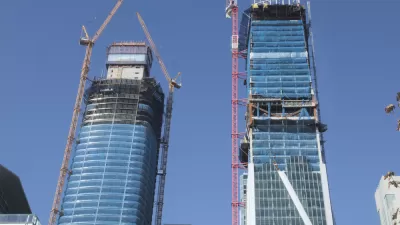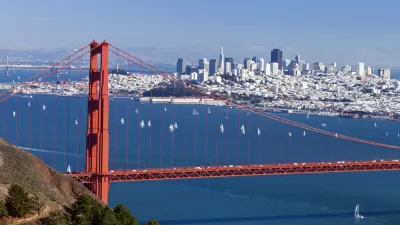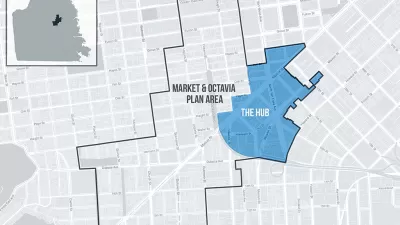Historically liberal cities belie their supposed concern for human welfare by rejecting new development. Meanwhile, more conservative cities have seized the moment to become more progressive, innovative, and inclusive.

"The "radical left" has been protesting capitalist developers for years. In part because of the influence of self-described Democratic Socialist Dean Preston, the current Board of Supervisors has waded deeply into radical territory and into anti-developer activism. Of course, by many accounts, the provision of housing aligns squarely with progressive values: housing is a human right, and governments ought to protect, and even further, that right. A diversity housing typologies and price points, especially in dense, diverse cities, is the epitome of inclusiveness."
"San Francisco doesn't seem to get this. But some other cities do -- and not necessarily the ones you'd expect."
"I can't help thinking that the San Joses and San Diegos of the world want to get in on the fun. For pretty much as long as California has existed, they have been considered less urbane, less fun, and less attractive than rivals like San Francisco and Los Angeles. They missed out on the dense urbanism that developed before World War II and then contentedly took advantage of suburbanization in the latter half of the 20th century. Now that urbanism is back -- because of the creative class, antipathy towards long commutes, revolts against suburban living, or what-have-you -- they're grown tired of their own dullness (one of the more outlandish examples: San Jose's proposal for a weird monumental tower). And, importantly, they have relatively more land with which to try new things and seem unafraid of welcoming new residents."
FULL STORY: Let's Retire Our Ideological Labels For Cities

Alabama: Trump Terminates Settlements for Black Communities Harmed By Raw Sewage
Trump deemed the landmark civil rights agreement “illegal DEI and environmental justice policy.”

Planetizen Federal Action Tracker
A weekly monitor of how Trump’s orders and actions are impacting planners and planning in America.

The 120 Year Old Tiny Home Villages That Sheltered San Francisco’s Earthquake Refugees
More than a century ago, San Francisco mobilized to house thousands of residents displaced by the 1906 earthquake. Could their strategy offer a model for the present?

In Both Crashes and Crime, Public Transportation is Far Safer than Driving
Contrary to popular assumptions, public transportation has far lower crash and crime rates than automobile travel. For safer communities, improve and encourage transit travel.

Report: Zoning Reforms Should Complement Nashville’s Ambitious Transit Plan
Without reform, restrictive zoning codes will limit the impact of the city’s planned transit expansion and could exclude some of the residents who depend on transit the most.

Judge Orders Release of Frozen IRA, IIJA Funding
The decision is a victory for environmental groups who charged that freezing funds for critical infrastructure and disaster response programs caused “real and irreparable harm” to communities.
Urban Design for Planners 1: Software Tools
This six-course series explores essential urban design concepts using open source software and equips planners with the tools they need to participate fully in the urban design process.
Planning for Universal Design
Learn the tools for implementing Universal Design in planning regulations.
Clanton & Associates, Inc.
Jessamine County Fiscal Court
Institute for Housing and Urban Development Studies (IHS)
City of Grandview
Harvard GSD Executive Education
Toledo-Lucas County Plan Commissions
Salt Lake City
NYU Wagner Graduate School of Public Service





























